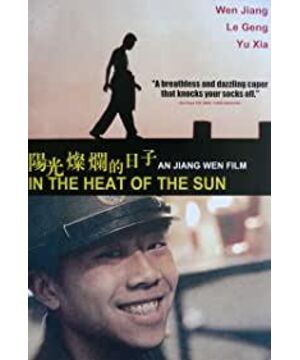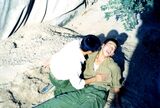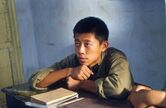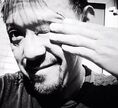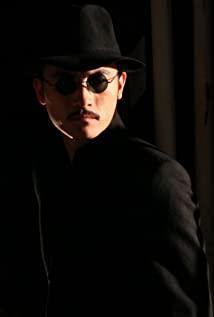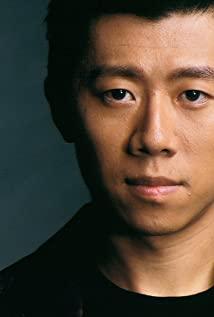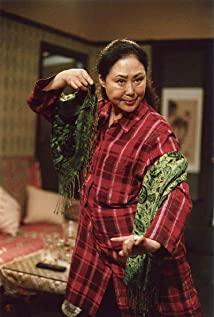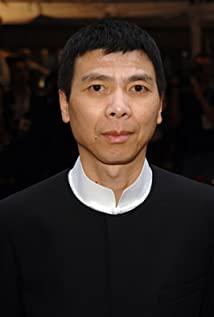1. The first edited version - duration: about 3 hours and 45 minutes
Difference: Geng Le, who played Liu Yiku in "Sunshine", once said at the re-screening event on Broadway in Beijing a few days ago that Jiang Wen still has A "four-hour" version of "Sunshine", in fact, he was referring to this most original first cut version. This initial version not only includes a completely different beginning and end from the public version, but also some important scenes such as Ma Xiaojun and his party rowing boats in the park and confronting Biaozi, Siqin Gaowa's breastfeeding (including nudity scenes), and the destruction of public spaces in the men's toilet. Fragments of the facility being scolded by a veteran cadre played by Fang Hua are all included. At the end of 2010, Jiang Wen publicly expressed his intention to provide this version for screening at a re-screening event of "Sunshine". The Beijing Broadway Film Center also communicated with Jiang Wen for several months, but in the end, the copyright of the film was complicated. and other reasons, and the never-released segment in this version is about 85 minutes long.
The beginning and end of the initial version are roughly as follows: In 1992, Ma Xiaojun (played by Jiang Wen), who had returned from his trip to the United States, reunited with his classmates in the hotel where he was at his alma mater, together with the white-haired Teacher Hu ( Feng Xiaogang (played by Feng Xiaogang), Mr. Hu is still serious, and he respectfully represents the whole school to thank Ma Xiaojun who has donated huge sums of money to the school, but Ma Xiaojun is not interested in everything in front of him, and his memory returns to the past... And the initial ending of the film is Ma Xiaojun and Ma Xiaojun Mr. Hu and others attended the groundbreaking ceremony for the new nephew of his alma mater, but Ma Xiaojun saw a girl who looked like Milan in the cheerleading team...
2. The 1994 Venice version - duration: about 2 hours and 18 minutes
Difference: this The version is a version that was temporarily modified according to the relevant "revision opinions" of the State Administration of Radio, Film and Television before the competition of "Sunshine" in Venice. It is almost the same as the length of the restored version, but there are two obvious changes: 1. Ma Xiaojun et al. Hutong The soundtrack of "The Internationale" in the gang fight section was cancelled; 2. The section in which the old chief played by Fang Hua watched the banned film "City of Rome" was deleted.
3. International version issued in overseas regions such as Hong Kong - duration: 2 hours 08 minutes
Difference: This version is the version that is currently circulating on the Internet and the version used by pirated discs in the market, and is mostly called the "Japan Second District DVD" version. The differences in this edition are as follows: 1. The three paragraphs "Breaking Smoke Rings", "Dream in Dreams" and "Drinking Mantras" have been deleted; 2. Yang Gao saw Yu Beibei's wet body and "straightened" ", the old chief watched the banned film "City of Rome" and the "dew point shot" of Milan after the attempted rape by Ma Xiaojun was retained.
4. The domestic release version in 1995 - Duration: 2 hours and 14 minutes
Difference: This version is the release version that won 50 million box office in 1995, and it is also the re-screening of "Sunny Days" in Beijing Broadway Studios at the end of 2010 The differences between the screened version and the international version are as follows: 1. The paragraph "Dream in a Dream", which is nearly 5.5 minutes long, is retained; 2. The above-mentioned Yang Gao's "Fuck Up" and "Dew Point" have been deleted; 3. , The sound of "The Internationale" in the section of the Hutong fight has been weakened (rather than canceled directly as in the Venice version); 4. The paragraph of the old boss watching the banned film "City of Rome" has been retained; 5. Like the overseas version, "smoke rings" ” and the paragraphs “Drinking Mantra” were deleted.
5. The 13-year Venice Restoration – Duration: 2 hours and 20 minutes
Difference: This version is the longest version that has been publicly screened/clicked so far. The deleted passages from Versions 2-4 to varying degrees have been retained in this edition, but a large number of passages in the "Preliminary Cut" have not been included.
The most popular versions on the Internet are the 134-minute version and the 128-minute version.
-------------------------------------------------- ------------------------------------
In the era of 1994, when criticism and reflection on the Cultural Revolution had gradually become a trend or "political correctness", Jiang Wen's "Sunny Days" can be said to have a lot of thinking and reflection that surpassed the times. At that time, Tian Zhuangzhuang already had "Blue Kite", Chen Kaige had "Farewell My Concubine", and Zhang Yimou already had "Alive". Different from these typical fifth-generation directors, Jiang Wen was born and raised in that environment, and he did not endure the hardships and pains of the fourth- or fifth-generation directors, the unexpressed confusion for ten years, and so on. Perhaps it is also a coincidence that he did not focus on themes such as suffering, nation, people at the bottom, and local consciousness when he expressed it. A story of growing up in a revolutionary age.
At the beginning of the film, the narration can be said to be very clear,
"Beijing, it has become so fast: in 20 years, she has become a modern city, and I can hardly find anything in my memory. In fact, this change has destroyed I can't tell the difference between illusion and reality. My story always happens in summer, the hot weather makes people more naked and it is more difficult to hide their desires. It seemed that it was always summer and the sun always It's time to come out and accompany me, the sun is full, it's too bright, it makes the eyes black..."
Yes, as said in this opening narration, the illusion and reality, the unconcealed desire in the heart, summer, it is this Something the film wants to express.
The film begins with bright and lively colors and music. The people's war is going on vigorously. Ma Xiaojun grew up in a military compound. His father is a soldier with "good status" and works in the field all the year round. The mother came from a bourgeois family of poor composition. Influenced by the romanticism and heroism of that era, Ma Xiaojun dreamed of a war between China and the Soviet Union and became a war hero in a new round of world war. He is childish, immature, lively, full of raw wildness. Thriving in that scarred old city.
As Ma Xiaojun threw his schoolbag high into the sky (here has to be reminiscent of the scene in Stanley Kubrick's "2001 A Space Odyssey", it is also full of joy and excitement. But the difference is Jiang Wen's Joy may be some kind of joy for the primitive wildness, which will be discussed later), Ma Xiaojun entered junior high school,
Then Jiang Wen's voice sounded,
"In the mid-1970s, there were not so many cars and luxury hotels in Beijing, and there were not so many people on the streets.
Those who were a few years older than us all went to the countryside and the army. This city belongs to us." It belongs to their golden age, fiery, brilliant, full of vitality, and unfettered life. As the title says, in the heat of sun. Therefore, it may be difficult for Jiang Wen to tell whether they miss their boyhood or the revolutionary era that people criticized. (My father, who was born in 1969, also has Jiang Wen's narration when he talks about the old times, "people never slipped to work at that time" type of complicated emotions.) The
film always proceeds in a yellow and old tone, in fact It is not the bright and golden yellow of the summer, but like the sun at dusk, there is not much warmth in the brilliance and enthusiasm, and it is dim and yellow. Just like the revolution of that era, the people's revolutionary movement is in full swing, but the pain and sorrow are deep. hide it. But for children in their teenage years, why does the memory have a melancholy color?
The rebellious Ma Xiaojun likes to skip classes and go out during class, sneak out doors and pick locks, wander around the corners of the city, open people's homes, and sneak into their living spaces, not to steal anything, but to use the eyes of a teenager. Watching the adult world. Until one day he met a mysterious girl, Milan, in this self-entertaining voyeur. The hazy smile in her photos has become a teenager's dream and fantasy. So
"I wandered around this building all day long, like a cat on a hot tin roof, anxiously waiting for the appearance of the person in the painting, she was like a ghost, coming and going without a trace, only my feeling and There are some traces and aromas left in the sense of smell, which can confirm her existence, I have extended the waiting time, even wearing the stars and wearing the moon, but still nothing."
The use of sexual repression to allegorize high-pressure politics seems to be a common method in art works. Jiang Wen's use of puns here not only represents the confusion and anxiety of adolescence, but also allows people to glimpse some characteristics of the social environment of that era. Yes, why does Ma Xiaojun have such deep and complicated feelings for Milan, why is the love of the young man so strong to the point of being deeply infatuated, is it just the effect of puberty hormones, just because he can't catch the girl he likes? He waited again and again and anxiously searched. In those sunny days, Ma Xiaojun searched hard, disappointed, anxious, and lost. The dim sunlight flooded the roof, lengthening the figure of chasing people. (Like Robert De Niro in Martin Scorsese's "Taxi Driver.") The more Jiang Wen expresses that obsessive and repressed feeling, the more people realize that the real reason won't be simple single hormones.
In that era, the need for self-expression was suppressed, and people were subject to highly political control (for example, when Ma Xiaojun was arrested at the Public Security Bureau, you can get a glimpse of the law enforcement agencies at that time), but the teenagers would not recognize this, they were only in the Unconsciously, they feel anxious, depressed, and confused. In front of traditional authority, they can't speak their minds. They don't know who is wrong or what is wrong, which makes them angry, uneasy, and lonely. Going to the street to meet a girl is a hooligan, liking a person and loving a person is actually sinful and immoral. There is no answer to all the questions, you can only stick your neck and play hooligans.
Just like the role of empathy, the confusion and depression of the teenager in that era were transferred like a pouring out after meeting Milan. Their doubts about their own existence and about the system are transferred to their fascination with eroticism itself. This desire makes the viewer feel more and more real in a large number of details, and the more real desire is, the more absurd and contradictory it will feel when it is suppressed.
I have to mention the classic shot here, Ma Xiaojun lying under the bed peeping at Milan, half-covered perspective, serene plump calves. From the perspective of Freud's pansexualism, the satisfaction of voyeurism is actually an extension of sexual satisfaction. It is from this lens that we feel Ma Xiaojun's strong desire to voyeurize, and feel the suppression of the environment on people from the side.
Reality and hallucinations, expectations and desires, self-identity and non-authentic existence, ideal self and real self, began to become one, and the true and the false were indistinguishable.
"01:09:45 My memory seems to have gone wrong. Facts and hallucinations are mixed together. Maybe she never slept in front of me, maybe she never stared at me like this. Then she is like an awl How did the sharp eyes and the sound of sleeping come to my mind."
So Jiang Wen clearly told the audience at this time that maybe Ma Xiaojun had never met Milan in that small and cramped room, and he was in bed. Peeping down at her plump legs and bare body, sweating with tension, maybe he never tilted the kettle to let warm water run down her hair on a sunny afternoon, maybe he never was in the room with her Dancing to Mascari's "Country Rider", watching her sleeping, recognizing her as her sister, and being childish in her presence.
Perhaps the first time they met was when Ma Xiaojun came back from his grandfather's funeral in Tangshan with his mother, and saw Liu Yiku and a girl wearing beautiful sandals intimately together, Liu Yiku said: "Ma Xiaojun, long time no see, this is Milan." What
's the point of this fake Ma Xiaojun, this fake farce?
No, if the memory recorded this false story, then it had some meaning.
And which version is the real one?
Actually it doesn't matter anymore.
The narration here is very clear.
All kinds of events happened so mysteriously. In the first half of the story, there was almost no evidence of the presence of a "third party", and the story of desire turned into a story finally turned into a moon-like memory after the diving.
To a certain extent, that diving can be regarded as the dividing point of Ma Xiaojun's growth. Before it, Ma was young, immature, wild, rebellious, confused, anxious, full of disorder in the early stage of Chinese society's emergence from chaos and ignorance. State, and later, Ma experienced the setbacks of adolescence, self-identity crisis, Ma Xiaojun grew up, and at this time, the objective environment of Chinese society also experienced reform and opening up, and both self and society entered a better maturity period, but some kind of The thing, the thing Jiang Wen cherished, a kind of wild power, was thrown away.
So, when we follow Ma Xiaojun all the way to the end of the film, the bright colors have changed to black and white with lower information content. Will the memory be more blurred now than in the past?
We saw that Ma Xiaojun had become famous, there were entrepreneurs, and there were war heroes. When they were happily walking through the streets of Beijing in luxury cars, they came across Gu Lunmu who connected with childhood memories. They shouted Gu Lunmu in surprise and got a fool's reply. Ma Xiaojun was stunned, and the audience was stunned.
Now let's talk about a core thing in the whole film, some kind of original wild power.
I think this is also a place where Xia Yu played Ma Xiaojun very vividly.
This power mixed with the rebellion of adolescence is a kind of anti-institutionalized wildness of the Ma Xiaojuns. They skipped classes, threw school bags, flouted the textbook knowledge that traditional authorities held as classics, smoked, fought, slapped girls, slammed locks, peeped and had no moral sense of guilt, and were bad boys in the eyes of everyone. Ma Xiaojun is sensitive to everything around him. He can feel lost, confused and anxious in the joyful society. In the chaotic state created by the social environment of high-pressure politics, the children obtained a lower level of institutionalization.
In fact, a passage from Wang Shuo can make it very clear,
"I am grateful for the era in which I lived, when students achieved unprecedented liberation and did not have to learn useless knowledge that was destined to be forgotten later. I am very sympathetic to current students. , even if they realize that they are wasting their youth, there is nothing they can do. I still maintain that the reason people force young people to study and lure them with a bright future is just to keep them from making trouble
in the streets.” In the golden light of overexposure In the novel, Jiang Wen is not only telling an autobiographical story, the contest between reality and illusion does not end with who wins and who loses. The illusion is more like a mirror image of reality, telling the truth behind the truth.
Therefore, it deserves the review of "Time",
"Chinese director Jiang Wen's "Sunny Day" is one of the most amazing films in the world in 1994 that is still eager to watch."
Even that year "Blue White Red" Trilogy", "The Shawshank Redemption", "Forrest Gump", "This Killer Is Not Too Cold", "Pulp Fiction" and "The Burning Years" were released.
2014.12.22
View more about In the Heat of the Sun reviews


